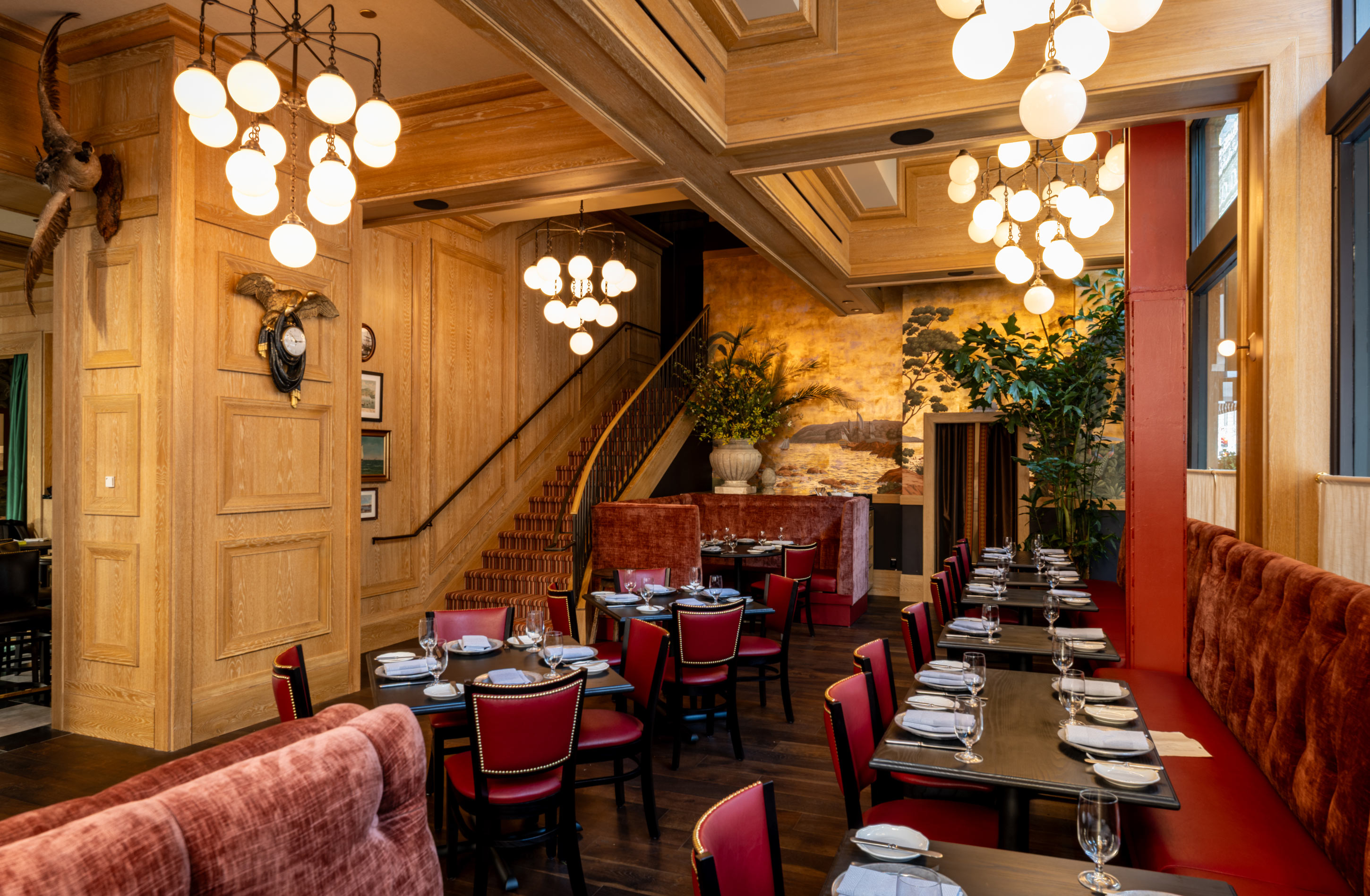
Choosing the right AI voice platform for your restaurant isn't just about features—it's about finding a solution that truly understands hospitality. With over 68 billion spam calls made worldwide in 2022, restaurants need AI systems that can filter genuine guest inquiries from noise while delivering the warm, personalized service your brand promises (Medium).
This comprehensive comparison examines Hostie AI and ReachifyAI across the metrics that matter most to restaurant operators: cost per location, multilingual coverage, POS integrations, spam-call filtering, and accuracy benchmarks from real-world testing. We'll translate feature differences into dollar impact, helping you choose the platform that best fits your concept and budget.
The restaurant industry demands AI that speaks the language of hospitality—not rigid templates that frustrate guests and staff alike. As AI model costs have decreased by approximately 10x from around $36 per million tokens in March 2023 to about $3.5 by August 2024, the focus has shifted from basic functionality to sophisticated, conversational experiences that rival human interaction (MentorCruise).
Hostie AI was created by a restaurant owner and an AI engineer, Brendan Wood, specifically to address the unique challenges of restaurant communication (Hostie AI). The platform uses natural, conversational language and personalizes responses based on intent, navigating complex requests with the nuance that hospitality demands (Hostie AI).
The system integrates directly with existing reservation systems, POS systems, and event planning software, allowing it to both take in information and act on it simultaneously (Hostie AI). This dual capability means Hostie can handle everything from simple reservation changes to complex private event inquiries and complicated order modifications (Hostie AI).
While specific details about ReachifyAI's architecture aren't available in our research, the comparison with similar platforms reveals important distinctions. Many voice AI platforms rely on rigid templates and limited sets of prompts, which can make nuanced conversations harder to execute—a critical limitation in the hospitality industry where every guest interaction matters (Hostie AI).
| Feature | Hostie AI | ReachifyAI |
|---|---|---|
| Conversation Style | Natural, conversational language with intent-based personalization | Template-based responses (typical of many platforms) |
| Prompt Flexibility | Unlimited prompts with full customization | Limited by template structure |
| Complex Request Handling | Handles multi-step requests, modifications, and event planning | Basic query handling |
| Real-time Visibility | Full conversation visibility in real-time | Standard reporting |
Hostie offers unmatched flexibility with unlimited prompts and the ability to navigate complex, multi-layered conversations that are common in restaurant settings (Hostie AI). This flexibility becomes crucial when guests call with requests like "I need to change my 7 PM reservation for four to 8 PM for six people, and can you also tell me if you have any vegetarian options for someone with a gluten allergy?"
The restaurant industry increasingly serves diverse communities, making multilingual support essential. Recent advances in AI voice technology have enabled platforms to support dozens of languages with high accuracy rates. AssemblyAI's Universal model, for example, achieves word accuracy rates of 93.4% in English, 94.7% in Spanish, and 92.7% in German (AssemblyAI).
Hostie AI provides multilingual support in over 20 languages, ensuring your restaurant can serve guests in their preferred language (Hostie AI). This capability is particularly valuable for restaurants in diverse metropolitan areas or tourist destinations.
Seamless integration with existing restaurant technology stacks is non-negotiable. Hostie AI integrates directly with the tools restaurants already use—existing reservation systems, POS systems, and even event planning software (Hostie AI). This comprehensive integration approach eliminates the need for staff to toggle between multiple systems during busy service periods.
The platform's ability to both receive information and act on it simultaneously sets it apart from competitors that may only handle one-way data flow (Hostie AI). This bidirectional capability means Hostie can not only take a reservation but also immediately update your reservation system, send confirmation texts, and flag special dietary requirements—all in one seamless interaction.
Accuracy in restaurant environments presents unique challenges. Background noise from kitchens, dining rooms, and street traffic can significantly impact speech recognition performance. Industry benchmarks show that specialized AI models often outperform generalist solutions in domain-specific applications (aiOla).
The latest speech-to-text models demonstrate impressive accuracy rates, with top performers achieving word error rates as low as 5.3% in Spanish and 6.6% in English (AssemblyAI). However, restaurant-specific terminology, menu items, and conversational patterns require specialized training that general-purpose models may lack.
Beyond basic speech recognition, the ability to understand intent and respond appropriately separates sophisticated AI platforms from basic voice assistants. Hostie AI's approach of using natural, conversational language with intent-based personalization addresses this challenge directly (Hostie AI).
The platform's restaurant-specific training enables it to understand context that might confuse general-purpose AI. For example, when a guest says "I'd like a table for two at eight," Hostie understands this refers to 8 PM, not 8 AM, and can navigate follow-up questions about seating preferences, dietary restrictions, or special occasions.
Restaurants face a constant barrage of unwanted calls that interrupt service and waste staff time. With over 68 billion spam calls made worldwide in 2022, effective filtering has become essential for maintaining operational efficiency (Medium).
AI-driven spam detection uses machine learning algorithms that continuously adapt and learn from new patterns in spam activity (Medium). This adaptive approach is crucial as spam tactics evolve and become more sophisticated.
Hostie AI's spam filtering capabilities help restaurants focus on genuine guest inquiries while automatically handling or filtering out unwanted calls. The system's ability to analyze call patterns, recognize legitimate restaurant-related requests, and distinguish between genuine guests and spam callers protects valuable staff time during busy service periods.
The platform's real-time conversation visibility allows managers to monitor filtering effectiveness and adjust parameters as needed (Hostie AI). This transparency ensures that legitimate calls aren't inadvertently filtered while maintaining protection against unwanted interruptions.
When evaluating AI voice platforms, restaurants must consider more than just monthly subscription fees. Total cost of ownership includes setup fees, integration costs, training time, and ongoing support requirements. The decision between different hosting approaches can significantly impact long-term costs, with some solutions offering better scalability and convenience despite higher upfront costs (GopenAI).
While specific pricing details for Hostie AI aren't provided in our research, the platform's focus on restaurant-specific functionality and comprehensive integration capabilities suggests a value-based pricing model that considers the total impact on restaurant operations.
The platform's ability to handle complex requests and integrate with existing systems can reduce the need for additional staff during peak hours, potentially offsetting subscription costs through improved operational efficiency (Hostie AI).
To properly evaluate AI voice platform costs, restaurants should consider:
As one restaurant operator noted, "The phones would ring constantly throughout service. We'd get calls for basic questions that were already on our website. Hostie has made the job easier for the host and doesn't disturb guests while they're enjoying their meal" (Hostie AI).
Restaurant ROI calculators help operators understand the financial impact of operational improvements (Coffee Shop Keys). For AI voice platforms, key metrics include:
Time Savings Calculation:
Revenue Protection:
Customer Experience Value:
Healthcare ROI calculators demonstrate how sophisticated tools can account for multiple variables and scenarios (ROI Calculator). Restaurant AI platforms should be evaluated similarly, considering factors like:
Modern restaurants operate with interconnected technology stacks that must work seamlessly together. AI voice platforms that require manual data entry or separate systems create operational friction that can negate their benefits.
Hostie AI's direct integration with existing reservation systems, POS systems, and event planning software eliminates this friction (Hostie AI). The platform's ability to both receive information and act on it simultaneously means that a single phone call can result in multiple system updates without staff intervention.
Reservation Management:
Order Processing:
The platform's comprehensive integration approach reflects its restaurant-industry origins. Unlike general-purpose AI platforms that may require custom development for restaurant-specific integrations, Hostie AI was designed from the ground up to work with the tools restaurants already use (Hostie AI).
Hostie AI is purpose-built for restaurants looking for a voice AI platform that can truly speak the language of hospitality (Hostie AI). This industry focus manifests in several key ways:
Menu Knowledge: Understanding of restaurant terminology, cooking methods, dietary restrictions, and ingredient substitutions
Service Flow Awareness: Recognition of peak hours, table turn times, and kitchen capacity constraints
Guest Relationship Management: Ability to handle special occasions, loyalty program inquiries, and personalized service requests
The broader AI voice market includes platforms designed for various industries, but restaurant-specific solutions offer distinct advantages. Vox AI, for example, launched conversational AI technology specifically for drive-thru restaurants, supporting 35 languages and claiming to boost ROI by 14 times (Restaurant Dive).
This industry specialization trend reflects the recognition that generic AI solutions often fall short of industry-specific requirements. Restaurants need AI that understands not just what guests are saying, but the context and implications of their requests within the hospitality environment.
Successful AI implementation requires more than just technical setup. Restaurant teams need training, support, and ongoing optimization to maximize platform benefits. Hostie AI's restaurant industry background suggests an understanding of these operational realities.
The platform provides full visibility into every conversation in real time, allowing managers to monitor performance, identify training opportunities, and ensure quality standards are maintained (Hostie AI).
AI platforms improve over time through machine learning and continuous training. Hostie's automated guest management system learns and engages with increasing nuance as it processes more interactions (Hostie AI). This learning capability means the platform becomes more effective at handling your restaurant's specific needs and guest preferences over time.
Restaurant operations don't pause for technical issues. AI voice platforms must provide reliable support and quick issue resolution to maintain service continuity. The platform's real-time monitoring capabilities help identify and address issues before they impact guest experience.
The AI landscape continues evolving rapidly, with coding benchmark quality improving from around 67% to over 92% in recent years (MentorCruise). Restaurant AI platforms must evolve alongside these technological advances to maintain competitive advantages.
Hostie AI's flexible architecture and unlimited prompt capability position it well for future enhancements (Hostie AI). Unlike template-based systems that may require significant redevelopment for new features, Hostie's conversational approach can adapt to new capabilities more seamlessly.
As restaurants grow or add locations, their AI voice platform must scale accordingly. Hostie AI's integration capabilities and restaurant-specific design make it suitable for both single-location independents and multi-unit operations (Hostie AI).
The platform's ability to handle complex requests and maintain conversation context becomes increasingly valuable as restaurant operations become more sophisticated and guest expectations continue rising.
When evaluating AI voice platforms, restaurant operators should consider:
Hostie AI delivers human-level service at scale, addressing the core challenge of maintaining hospitality standards while managing high call volumes (Hostie AI). The platform's restaurant industry origins ensure it understands the nuances that matter most to operators and guests alike.
The system's comprehensive integration capabilities, unlimited prompt flexibility, and real-time visibility provide operational advantages that translate directly into improved efficiency and guest satisfaction (Hostie AI).
Choosing between Hostie AI and ReachifyAI ultimately comes down to understanding your restaurant's specific needs and priorities. While both platforms offer AI voice capabilities, Hostie AI's restaurant-industry focus, comprehensive integration approach, and conversational flexibility provide distinct advantages for hospitality operations.
The platform's ability to handle complex requests, integrate seamlessly with existing systems, and maintain the warm, personalized service that defines great hospitality makes it particularly well-suited for restaurants that view guest communication as a competitive advantage (Hostie AI).
As AI technology continues advancing and costs continue decreasing, the focus shifts from basic functionality to sophisticated, industry-specific solutions that truly understand your business (MentorCruise). Hostie AI's purpose-built approach positions it as a platform that can grow with your restaurant while maintaining the hospitality standards your guests expect.
For restaurant operators ready to transform their guest communication experience, the choice becomes clear: invest in a platform designed by restaurateurs, for restaurateurs, that truly speaks the language of hospitality (Hostie AI).
💡 Ready to see Hostie in action?
Don't miss another reservation or guest call.
👉 Book a demo with Hostie today
Hostie AI focuses specifically on restaurant guest experience with hospitality-trained models, while ReachifyAI offers broader business communication solutions. Hostie AI specializes in filtering genuine guest inquiries from spam calls and delivering personalized service that matches your restaurant's brand voice. The key difference lies in industry specialization versus general-purpose AI capabilities.
Modern restaurant voice AI systems have significantly improved, with top models achieving over 93% word accuracy rates. However, traditional ASR models struggle with industry-specific terminology and real-world conversational speech in restaurant environments. Specialized restaurant AI platforms are designed to handle hospitality jargon, background noise, and diverse customer accents more effectively than general-purpose speech recognition.
Restaurant voice AI systems can deliver substantial ROI through reduced labor costs, increased order accuracy, and improved customer satisfaction. Some drive-thru AI solutions report ROI increases of up to 14 times initial investment. The ROI depends on factors like call volume, staff wages, and the system's ability to handle complex orders without human intervention.
With over 68 billion spam calls made worldwide in 2022, restaurant AI systems use machine learning algorithms that continuously adapt to new spam patterns. These systems analyze call patterns, voice characteristics, and conversation context to distinguish between genuine customer inquiries and spam. AI-powered spam detection processes massive datasets to identify and filter malicious calls before they reach restaurant staff.
According to Hostie AI research, missed connections significantly impact customer loyalty, with over two-thirds of Americans willing to ditch restaurants that don't answer their calls. This highlights the critical importance of reliable phone service in the hospitality industry. Customers expect immediate response for reservations, orders, and inquiries, making voice AI systems essential for maintaining customer relationships and preventing revenue loss.
The choice between AWS Bedrock and self-hosting involves balancing cost, scalability, and convenience. While self-hosting solutions like DeepSeek can be cheaper long-term, AWS Bedrock offers unmatched scalability and convenience for restaurants. The decision isn't just about the $100,000 cost threshold but also considers factors like technical expertise, maintenance requirements, and potential impact on AI performance in restaurant environments.
RELATED


